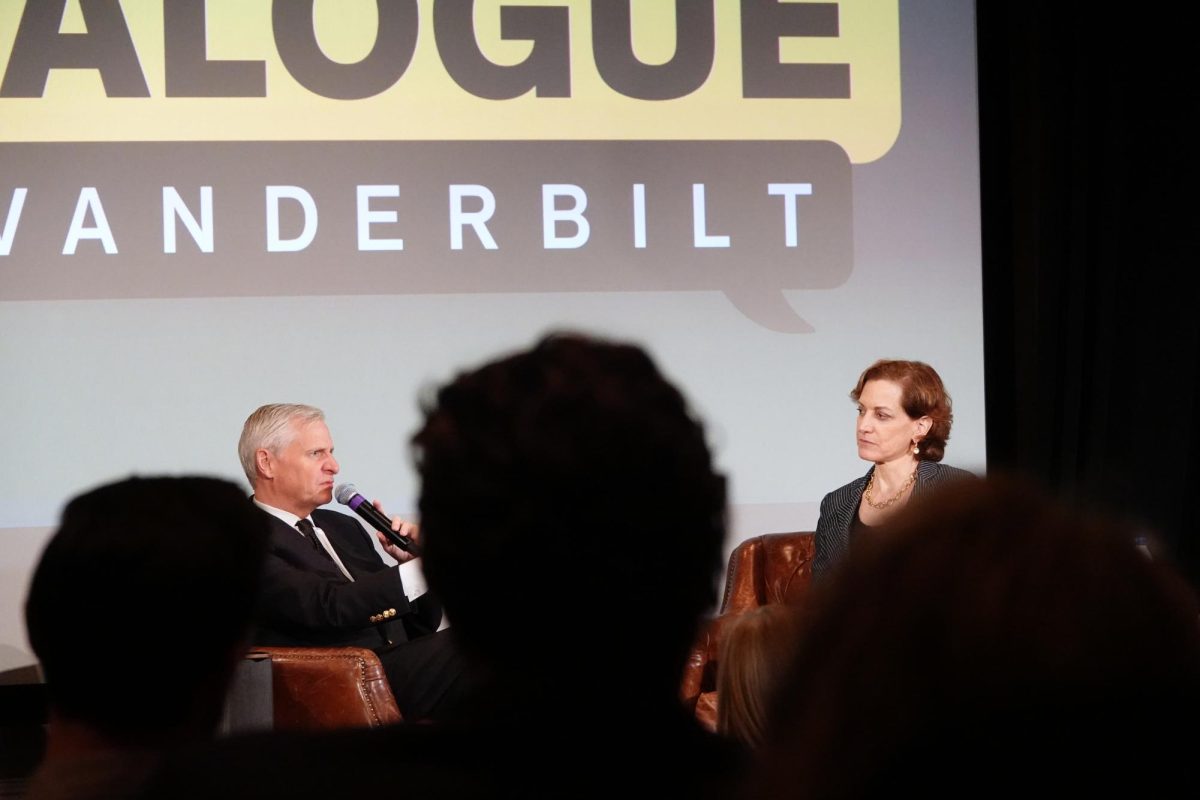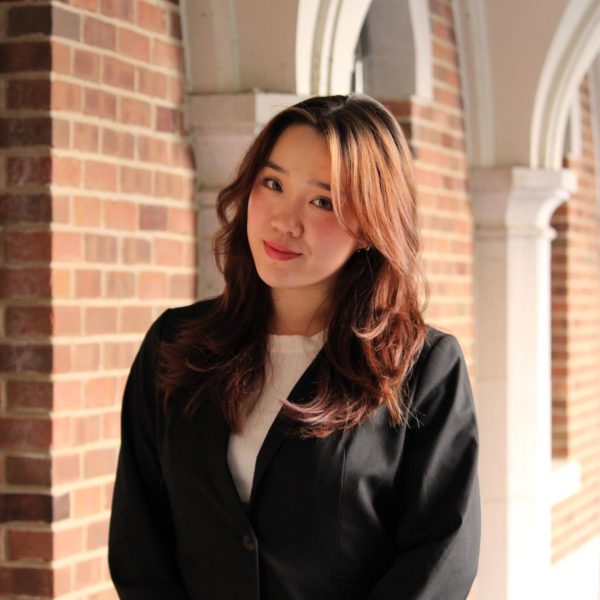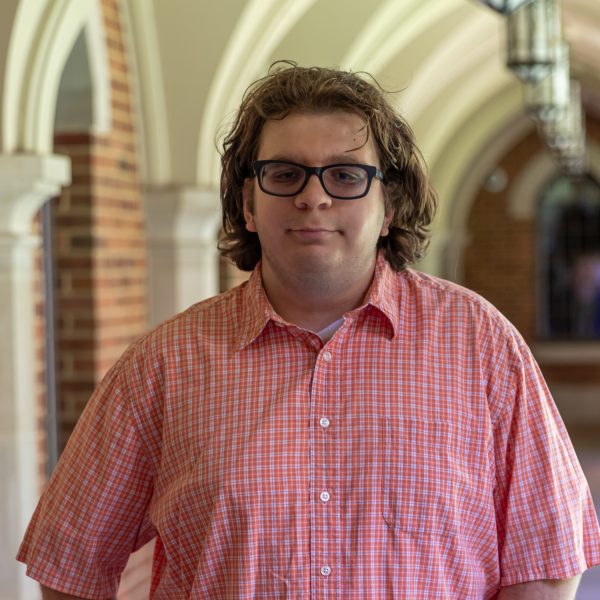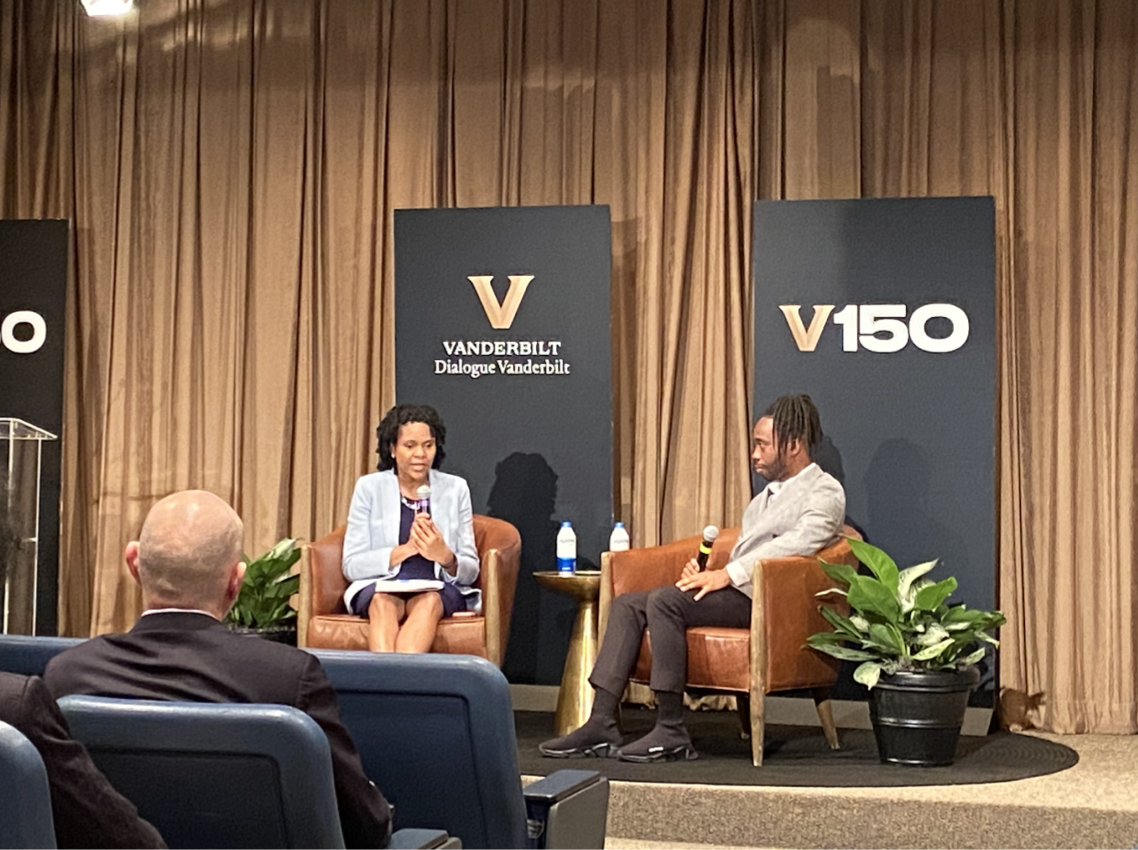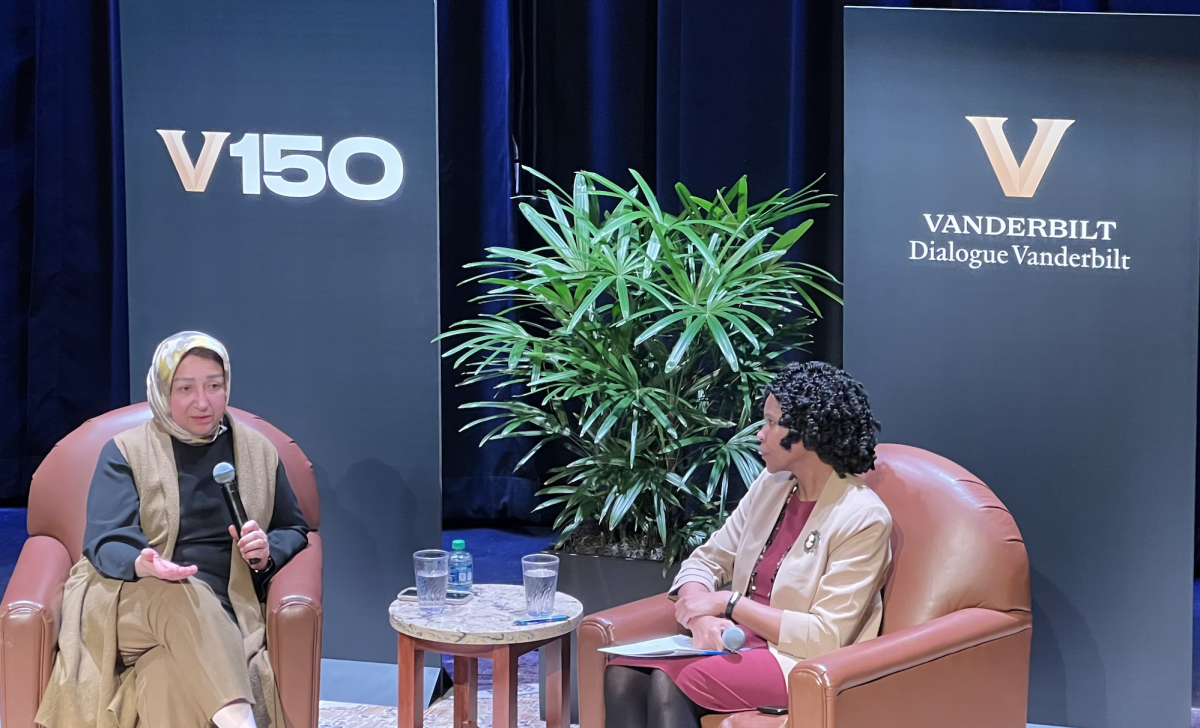The Open Dialogue Visiting Fellows program hosted Pulitzer Prize-winning journalist Anne Applebaum on March 5 to speak at the John Seigenthaler Center about autocracies emerging around the world. Dialogue Vanderbilt and the Vanderbilt Project on Unity and American Democracy co-sponsored the discussion, which was moderated by political science professor Jon Meacham.
After reporting for 15 years on the fall of communism in Eastern Europe, Applebaum now works as a staff writer for The Atlantic. She has written several books including “Twilight of Democracy: The Seductive Lure of Authoritarianism” and “Gulag: A History,” the latter winning a Pulitzer Prize in 2004. Applebaum is also the co-director of Arena, a program on disinformation and 21st-century propaganda at the Johns Hopkins University School of Advanced International Studies.
Autocracy around the world
Applebaum began by discussing the rise and fall of autocracy and democracy from the late 20th century to present day. As a young journalist in Poland in 1989, she covered protests pushing for democracy in Eastern Europe, including the fall of the Berlin Wall. Drawing similarities with past autocracies and the modern United States, Applebaum argued that American democracy faces similar dangers of turning into an autocracy.
“Whether it was in Warsaw or whether it was a couple years later in Moscow, what was driving people was this desire for freedom,” Applebaum said. “They wanted something better — they wanted to live in a more open society.”
Though U.S. democracy was “restricted to landowning white men” in the past, Applebaum argued that democracy in the U.S. had typically seen an upward trajectory, whereas many other nations have not shared the same linear experience. She cited Greece as an example of a nation having undergone numerous cycles of autocracy, revolution, democracy and, subsequently, polarization. Whereas the comparatively younger U.S. treats the rise of polarization as a concern, Applebaum said that polarization is much more normalized in the older countries she has resided in.
“I have these different allegiances to London; I live some of the time in Poland and here [in the U.S.]. I was watching really sharp polarization happen everywhere,” Applebaum said. “[I learned] polarization is normal. [Where I] grew up was weird — this feeling that you live in a more or less consensual society where people had different political views, but at least they agreed about what the rules of debate were.”
Polarization in the U.S.
Noting that the way in which people get and process political information is “profoundly different” from before the age of the internet, Applebaum said she believes that modern political polarization has seeped into modern day culture, causing “cultural backlash” worldwide.
“It becomes very hard to sort what’s true, what’s false, what’s important, what’s not important. The advantage of democracy in the past was always that it gave people some sense of agency, [but now] it seems like nobody has any control,” Applebaum said. “People [are] saying ‘there’s too much noise, I don’t want to hear it anymore. I just want to hear one message.’”
Senior Ari Sasson, an Open Dialoguestudent ambassador said he believes higher numbers of media outlets and easier access to information online mean that journalism has become less credible. Simultaneously, however, he views the role of reliable journalism and the ability of the reader to discern credible information as far more important.
“We have to do our due diligence to make sure that what we’re seeing and hearing is true,” Sasson said. “It’s very important to attend conversations on things you may not be super interested in on a surface level and [experience] a symphony of conversations, unique perspectives [and] getting out of your comfort zone.”
Authoritarian rhetoric in the U.S.
According to Meacham, the rise of autocracy does not equate the need to “return” to an anti-autocratic past.
“The moral utility of the past is not to either feel superior to nor to condemn it reflexively but to assess ‘What did they get right? What did they get wrong?’” Meacham said.
Applebaum said the U.S. stands in a position of higher wealth and political power as compared to the rest of the world, citing its establishment as a world power between 1945 and 1989. In covering the fall of communism at the end of the 20th century, Applebaum realized that global admiration for a version of American democracy led the U.S. to fall into what she views as a state of complacency.
“It gave us the illusion that nothing would ever go wrong,” Applebaum said. “We became very lazy and actually politics does require effort, time and people’s commitments [rather than just relying on politicians].”
2024 presidential election
Meacham and Applebaum then discussed the U.S.’ current lack of two functioning political parties. Looking at the modern Republican Party, Applebaum argued that politicians today are living in a different kind of political system where they are afraid to state opinions due to threats from their colleagues, former President Donald Trump or online vitriol.
To challenge authoritarian states and leaders, Applebaum suggested a pro-democracy Republican movement that would utilize similar methods to global democratic movements. These methods include using specific rhetoric to inspire or energize apathetic voters, reaching younger demographics who feel estranged from politics or breaking down information echo chambers. She referred to the possibility of Trump winning the 2024 election as a potential threat to democratic institutions.
“There’s a difference between democracy producing a president you don’t like or disagree with and democracy producing an administration that ends democracy,” Applebaum said.
She compared “Trumpism” to the ideology of Viktor Orbán, who has been prime minister of Hungary since 2010 and previously held this position from 1998 to 2002. Applebaum noted that what made Orbán “dangerous” was how he changed the rules, the judicial system, the voting structure and the constitution in order to guarantee his power. She believes there is a similar pattern with Trump and his rhetoric.
“Trump himself is a very inconsistent and unpredictable person,” Applebaum said. “So the risk is that Trump would win and would begin changing the rules, and the reason why people are more afraid of this now than they were in 2016 is that public and online forums talk about ways Trump can actually do so.”
Applebaum criticized how the U.S. courts and the Department of Justice have failed to hold Trump accountable for his actions since 2021. She suggested examining how Alexei Navalny challenged Putin in the 2018 elections by appealing to different demographics through various social media platforms as an example of how Americans could be reaching audiences to pressure U.S. courts.
Russia-Ukraine War
Applebaum ended with a discussion of Russia and Ukraine as she has spent years covering the topic, culminating in her book “Red Famine: Stalin’s War on Ukraine.” She believes that Ukraine is standing on a “real hinge moment in history.”
“If the United States were to abandon Ukraine, which we are on the verge of doing because Trump has weaponized a minority in Congress to block aid to Ukraine, and worse Ukraine begins to lose, this would be understood by our allies — a group of 50 countries and by everybody else — as the U.S. not having the political capacity to even follow through on their own policy,” Applebaum said.
Though the U.S. has been a staunch ally of Ukraine via military and economic resources, Applebaum attributed the shift in support to the recent blocking of legislative attempts to aid Ukraine by Republican members of Congress.
Applebaum said she is especially concerned by the idea that the U.S. will lose its credibility as a global security measure against “Putinism” — or the spread of autocratic regimes and ideology — if it abandons Ukraine. According to Applebaum, this effect would trickle down into economic and political decisions made by countries who rely on the U.S. for military resources or economic products.
“This invasion is designed as [Putin] throwing down the gauntlet and saying to Europe: ‘You’ve been saying since 1945 we won’t have genocide in Europe ever again, and yet, we’re going to do it, and you’re going to not be able to stop us,’” Applebaum said. “He would be challenging America’s role as the security guarantor of Europe but also America’s role as a security guarantor in Taiwan and South Korea, in Japan and anywhere else in the world.”
Applebaum answered audience questions toward the end of the discussion. Regarding truth discernment and civic engagement, Applebaum emphasized teaching younger generations how algorithms work to push certain information that could reinforce one’s perspective.
“Before you get into disinformation, and how you know what’s true and what’s not true, what’s a good source, and what’s not a good source, you should also teach people the fundamentals of [their digital devices],” Applebaum said. “This is almost the most urgent, missing piece in education today — what kids are spending their time doing on their telephones.”











